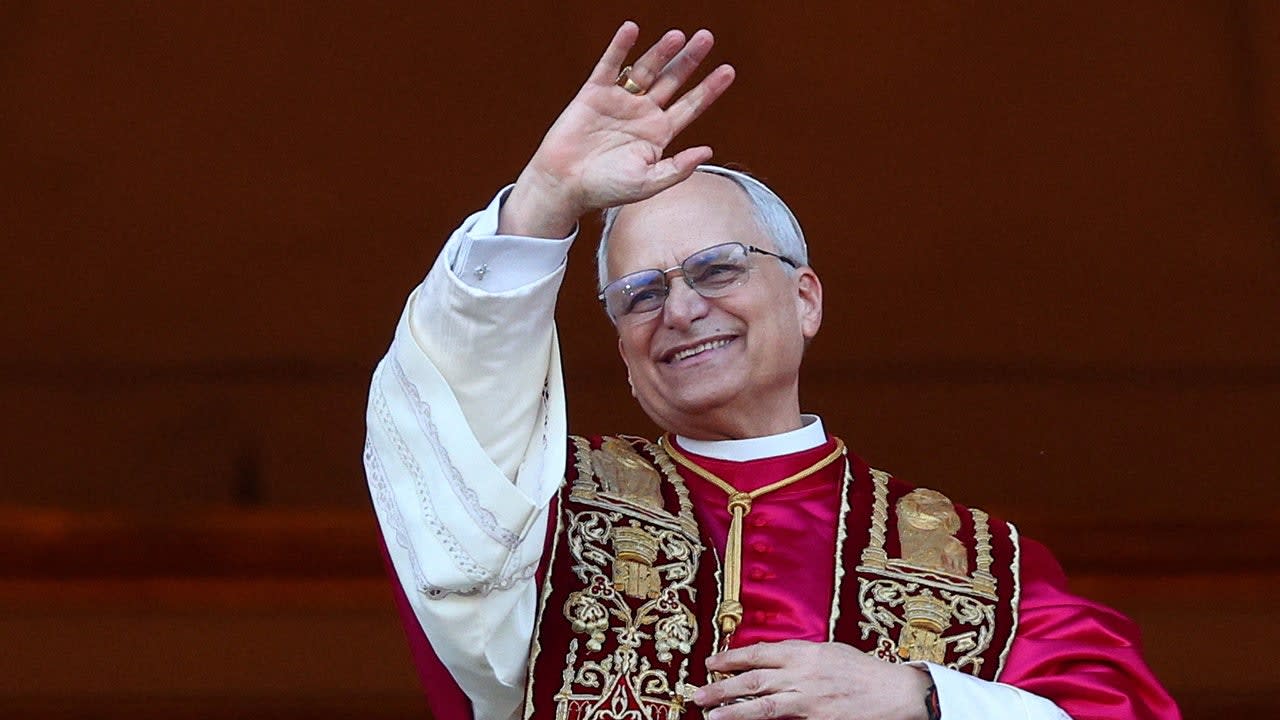Pope Leo XIV presides over his first mass.

The new Pope, Leo XIV (Robert Francis Prevost), an American Pope in the history of the Catholic Church, presided over a mass at the Sistine Chapel on Friday, May 9, amid global anticipation of his actions and words in the coming days.
The Pope (69 years old), known for his passion for Christian history and mathematics, delivered his first sermon after his election during the mass broadcasted by the Vatican media, in the presence of the cardinals.
First Appearance and Global Presence
In his first public appearance on Thursday evening from the balcony of St. Peter's Basilica, the Pope greeted over 1.4 billion Catholics worldwide saying, "Peace be with you all" in a clear American accent, then emotionally added: "Thank you to Pope Francis," who passed away at the age of 88 on April 21, and thanked the cardinals for his election.
Crowds celebrated his inauguration with warm applause, while the cathedral bells rang for over an hour after the appearance of white smoke from the Sistine Chapel chimney signaling his selection.
International Congratulations and Expectations
International reactions poured in following his election, with U.S. President Donald Trump congratulating him, calling it a "great honor" for the United States, while French President Emmanuel Macron urged his papacy to be "a bearer of peace and hope."
Ukrainian President Volodymyr Zelensky expressed hope for continued Vatican support "morally and spiritually," while his Russian counterpart Vladimir Putin affirmed his trust in continued constructive cooperation with the Vatican.
Major Challenges Await
Pope Leo XIV, the 267th Pope in the Church's history, assumes office at a time when the Catholic Church faces multiple challenges, notably declining popularity in Europe and the need to address issues of sexual abuse within the Church institution.
He must also balance the diverse currents within the Church, especially amidst the contrast between secular Europe and the rapidly growing Catholic regions.
Observers are well aware of the challenge of dealing with the Roman Curia, which includes opponents of reforms by the late Pope Francis, in addition to managing relations with the world amid escalating international conflicts.
Election Process Reflecting Moderation
The new Pope was elected on the second day of the closed conclave, receiving no less than 89 votes, representing the required two-thirds majority.
The new Pope, who was elevated to the rank of cardinal in 2023, is known as a moderate figure combining field experience and diplomatic work within the Vatican.
Analysts suggest that Prevost's election represents continuity with the reformist approach of Pope Francis, although he is expected to adhere more to Vatican protocols and traditions compared to his predecessor.
In this context, François Mabille, director of the Geopolitical Religious Observatory, commented to "AFP" that the new Pope's choice "balances with the U.S. government's opposition and takes geopolitical standards into account," noting that his choice of the name "Leo XIV" and his previous missionary work form a bridge with Latin America, where he served.
Busy Agenda Ahead